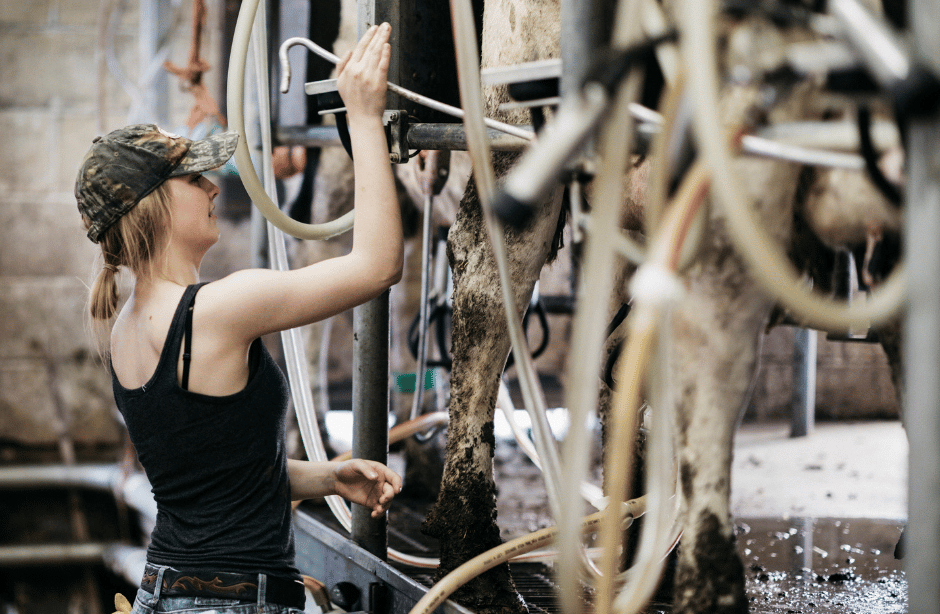

Summary
- The DILA allows dairy farms to sponsor overseas workers for critical roles like Senior Dairy Cattle Farm Worker and Farm Operator.
- Eligible workers can be sponsored under visa subclasses 482, 494, and 186.
- Regional Migration Australia helps farmers with eligibility, application, and compliance support.
At Regional Migration Australia, we know the backbone of Australia’s dairy industry is hard-working farmers and agricultural businesses. What many in the industry don’t yet realise is that there is a practical, government-approved solution to help with ongoing labour shortages: the Dairy Industry Labour Agreement (DILA).
This article explains what the Dairy Industry Labour Agreement is, how it works, and why it could be the game-changer your business needs.
What is the Dairy Industry Labour Agreement?
The DILA is a formal agreement between an Australian dairy business and the Australian Government. It allows farmers to sponsor overseas workers when suitably qualified Australians are not available.
Under a DILA, your farm can access semi-skilled international workers. This program specifically targets two key occupations:
- Senior Dairy Cattle Farm Worker
- Dairy Cattle Farm Operator
Why should farmers consider using the DILA?
There are ongoing challenges around sourcing and retaining experienced dairy workers in regional areas and throughout Australia. The DILA helps to address these workforce gaps by allowing businesses to sponsor qualified overseas workers.
Key benefits include:
- A clear legal pathway for employing skilled international workers.
- Access to workers with qualifications and real-world experience.
Under a DILA, farmers can boost productivity by sponsoring key workers to help run their farms effectively.
What are the visa options under the DILA?
Businesses that enter into a DILA can sponsor workers through these visa pathways:
- Skills in Demand visa (subclass 482).
- Skilled Employer Sponsored Regional (Provisional) visa (subclass 494).
- Employer Nomination Scheme visa (subclass 186), after a 3-year transition period.
What are the requirements for overseas workers?
Senior Dairy Cattle Farm Workers:
- An AQF Certificate III (or equivalent) and 2 years’ recent, relevant experience OR
- 3 years’ recent, relevant experience without formal qualifications.
Dairy Cattle Farm Operators:
- An AQF Certificate II or III (or equivalent) OR
- 1 year of recent, relevant work experience in place of qualifications.
A short period of on-the-job training may also be required. The DILA ensures that workers have the skills and experience necessary to undertake the tasks and duties required for these roles.
Language and salary requirements
English Language:
- Minimum IELTS overall score of 5.0 (with small variations depending on visa type and location).
Salary:
- Workers must be paid at least 90% of the Temporary Skilled Migration Income Threshold (TSMIT) or Core Skilled Income Threshold (CSIT) for their respective visa.
- Full-time employment and adherence to National Employment Standards are required.
How Regional Migration Australia can help
At Regional Migration Australia, we work with dairy farmers and agribusinesses across Australia to:
- Assess your eligibility for a DILA.
- Manage your Labour Agreement request.
- Support you through the worker sponsorship and visa process.
- Provide ongoing advice and compliance assistance.
If you would like further information on the DILA, please get in touch with our team for a consultation today.
Disclaimer – Content in these articles does not constitute immigration or legal advice, it is not intended as a substitute for such advice and must not be relied upon as such. This material is intended to offer general guidelines for informational purposes only. The information provided is accurate as of the time of publication. Please consult with our Australian MARN registered agents via our content forms on our website or call on 1800 567 663 to make an appointment.
MARN – 2217877 / 1068715
